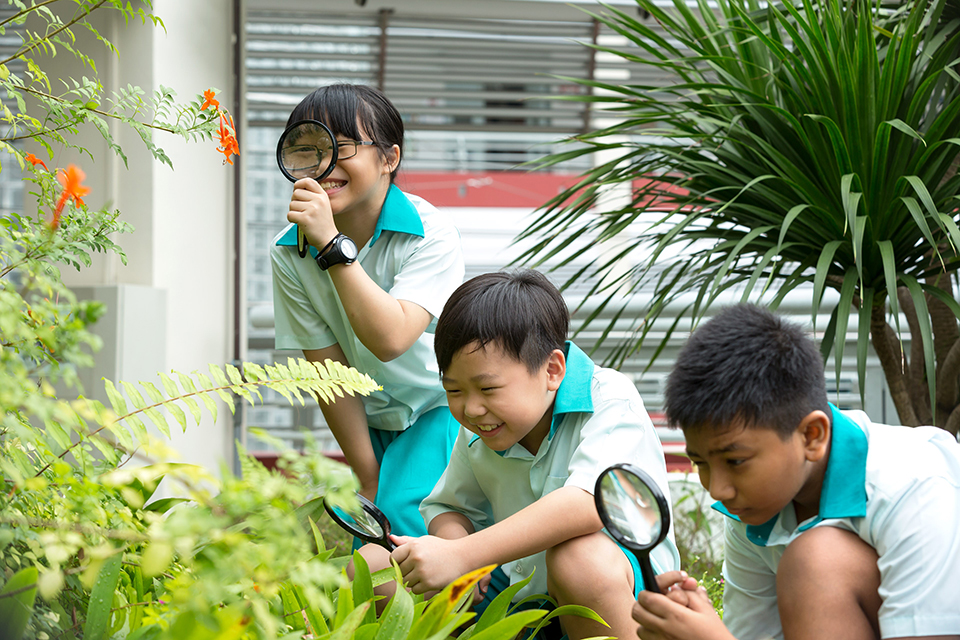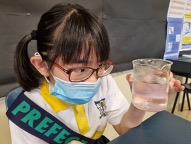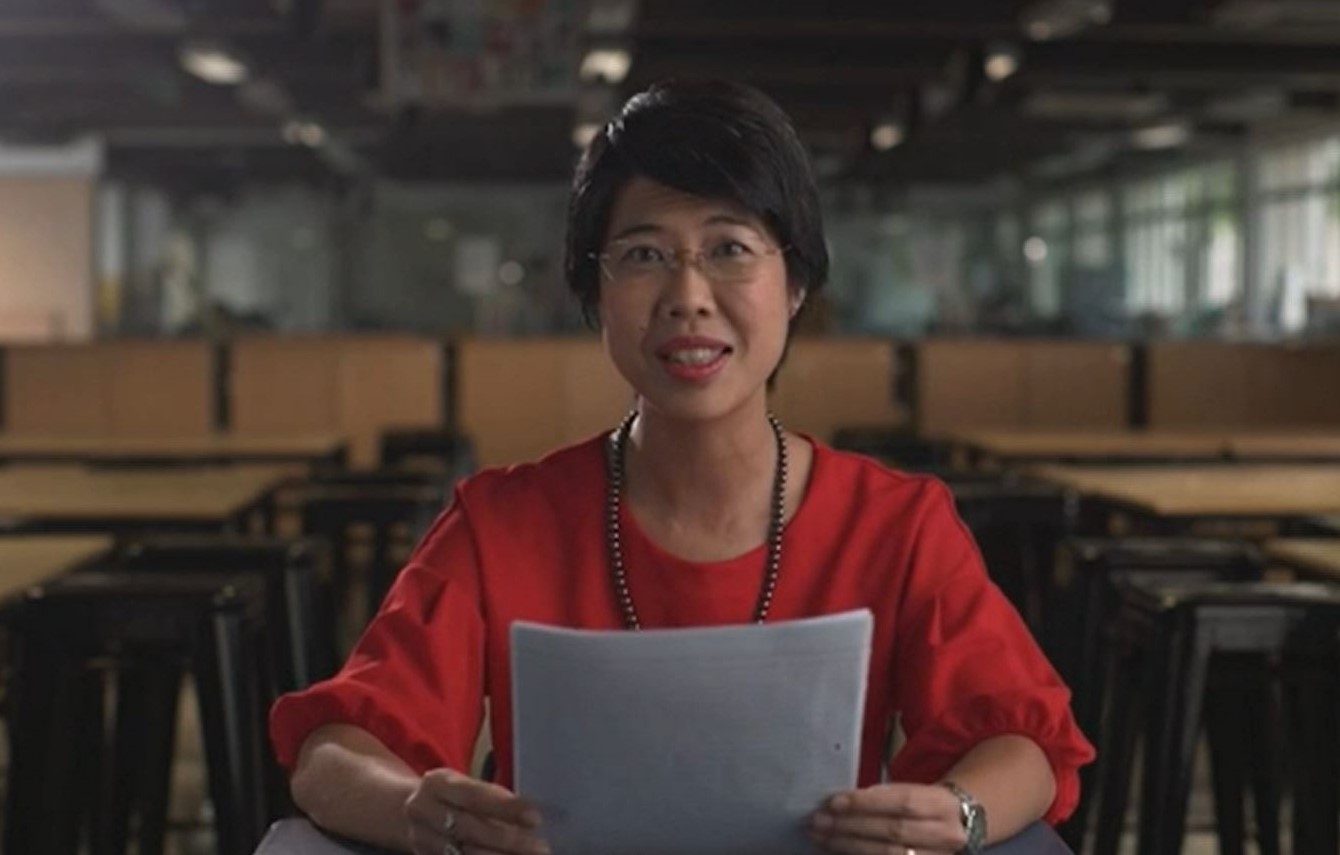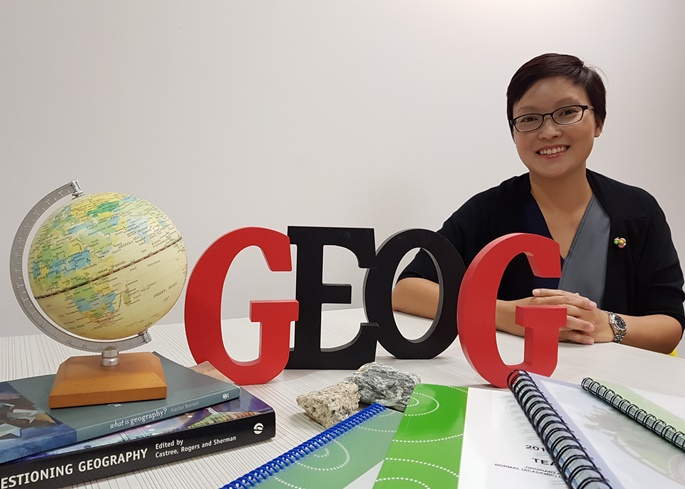|
Our Science panel |
|
|
Dr Chin Tan Ying Master Specialist for Science
Dr Chin works with various partners and schools in planning and implementing the primary science curriculum. |
|
|
Dr Tan Poh Hiang
Dr Tan works together with fellow educators in using assessment to support teaching and learning of primary science. |
|
|
Mdm Anne Wong Master Teacher for Primary Science, Eunos Primary School
Mdm Wong collaborates with fellow educators to inquire into teaching practices and students’ learning.
|
|
Q1: Is the learning of science all about memorising facts and keywords?
Dr Chin: As educators, we always say that science is all around us. Understanding science concepts helps us understand the world around us. And students will enjoy learning Science when they are able to use it to make sense of what happens around them in their daily lives.
In fact, Science is also a way of thinking and doing. When students conduct experiments, they learn about collecting relevant evidence and how to use evidence to construct explanations and make predictions about phenomena. They are actively participating in the learning process and not just passively memorising facts and keywords.
Unfortunately, the belief does persist among some parents and students that Science as a subject is all about facts, keywords, and “standard answers”. Memorising scientific facts and keywords only gives isolated knowledge, which is not meaningful and relevant to the learner. In Science, students can express ideas in their own words, as long as the ideas are expressed clearly, and are relevant and scientifically accurate to the given context.
For example, when asked why water puddles on the road were not seen after a while, students can say that the water has “evaporated” or “turned into water vapour”. Both replies show understanding that water has changed its state. However, if students say that the water has “disappeared”, the response suggests that the water no longer exists, which is scientifically incorrect. We encourage students to engage in scientific discussion with their teachers and peers to co-construct a plausible explanation of the phenomena around them.
Q2: How has the teaching and learning of Science changed over the years?
Mdm Wong: Some of us may recall memorising facts, such as examples of mammals and amphibians, definitions of processes such as photosynthesis and boiling when learning science in our primary school days. Science learning then was focused on the acquisition of knowledge. This was until then Prime Minister, Mr Goh Chok Tong, launched the “Thinking Schools, Learning Nation” (TSLN) vision for the Ministry of Education (MOE) in 1997.
|
|
|
Over the years, our perspectives on learning have changed. We understand that to nurture creativity and develop critical thinking in students, we need to allow them to play a more participative role in the learning process. Following the launch of the TSLN initiative, there have been deliberate efforts to move away from memorisation of facts to developing students’ ability to “do Science” in an active manner, to better support their learning of concepts. This is done through the incorporation of mini-investigative activities in the science classroom to progressively develop students’ skills over their primary school years.
Moreover, as information is so readily available on the Internet today, students do not just learn from their teachers or textbooks alone; they are also learning a lot from each other. For example, when students learn the topic on life cycle of animals, we can expect to see them exploring more about the life cycle of their favourite animals on the Internet, and sharing their findings with their friends.
|
|
|
Dr Tan: As teachers, we are also more aware that teaching is no longer about teachers transmitting knowledge. Teachers facilitate the learning process of students. Primary Science teaching and learning has adopted the inquiry-based approach and our Science lessons have become more interactive.
For example, the act of questioning is not just about teachers asking students questions and checking if their answers are right or wrong. Today, questioning is part of the learning process by both students and teachers. Students asks questions as part of the process to construct knowledge and clarify learning, while teachers use the questions asked by students to frame their subsequent lessons. Such an approach will allow students to apply the scientific concepts across different contexts, which can help in their responses to further questions posed whether in classroom discussions or in assessment.
Q3. With such changes, does the Science classroom look very different today?
Mdm Wong: Yes, it does. Science lessons today are often abuzz with activity as students do science and talk science.
At the heart of Science learning today, is MOE’s “hands-on, minds-on” approach where students are engaged in scientific inquiry. Science teachers provide the context for inquiry during their lessons, asking interesting questions to arouse curiosity and creating opportunities for students to engage in exploration and investigation of different phenomena. This process of uncovering knowledge leads to new knowledge being gained.
We also use manipulatives during lesson time to support hands-on activities for students. Currently, students use an activity kit developed by MOE’s Curriculum Planning and Development Division in collaboration with Science Centre Singapore to support their learning of Science. Called SPARKLE, which stands for Science Pack – Activity Resource Kits for Learning, these kits seek to spark opportunities for active questioning and discussions, to strengthen the students’ understanding of concepts and skills.
Teachers also bring in daily experiences where relevant, not only to help the students connect the abstract concepts to the phenomena that they encounter, but also to pique their interest.
During my lessons at Eunos Primary School, I encourage them to construct artefacts based on what they have learnt. For example, after learning about the various properties of materials, students are asked to make use of everyday materials to make a boat that can float and even sail on water in the presence of wind. The experience also helps build confidence and presentation skills as they put their boats to a test in front of their peers and justify their choice of the materials used when making the different parts of their boats.

A student presenting his homemade “boat” to his classmates before testing its “seaworthiness” with wind from a fan. This project was aimed at putting their lessons on properties of materials into practice.
On the topic of the water cycle at Primary 5, for example, our colleague Mrs Joan Chia from New Town Primary School did this activity with her students last year. When students observed that water droplets had formed on the surface of a cold beaker, they were encouraged to formulate their explanations of the phenomenon. In groups, the students used button magnets and coloured stickers to help them visualise and explain the process of condensation to one another. They also collaborated to refine and build on one another’s responses and co-constructed the final explanation. A great benefit of such activities is that students learn to listen and respect one another, and to work through their differences as a team. This also helps build a positive classroom culture, where students are encouraged to take ownership of their learning.
|
A student holding a beaker of cold water to observe condensation. |
|
Furthermore, with a wide range of learning resources that can be found in the Singapore Student Learning Space (SLS), students are not only empowered to direct their own learning, but also encouraged to learn Science beyond the boundaries of the classroom.

A sample lesson from the Student Learning Space on factors affecting the rate of evaporation of water.
Q4. How can parents work with schools to support students in their learning?
Dr Tan: Parental support and encouragement are important. As parents, we could encourage our children to ask questions respectfully and search for the answers keenly. These are not only important when learning Science, but support the development of social skills in children. We are also nurturing their curiosity about the world around them, and inspiring them to explore beyond what they already know.
Subconsciously, we are helping them to be confident learners and build their belief that everyone is able to think, do, talk and write Science. We believe that every child has unique strengths and weaknesses; some may perform better in one aspect than others. Together, they can learn a lot by listening to, and affirming one another as they contribute and learn as a group or in class. Let us, as teachers and parents, continue to ignite the wonder and curiosity in our children and provide them with authentic learning experiences for Science in and out of the classroom.















